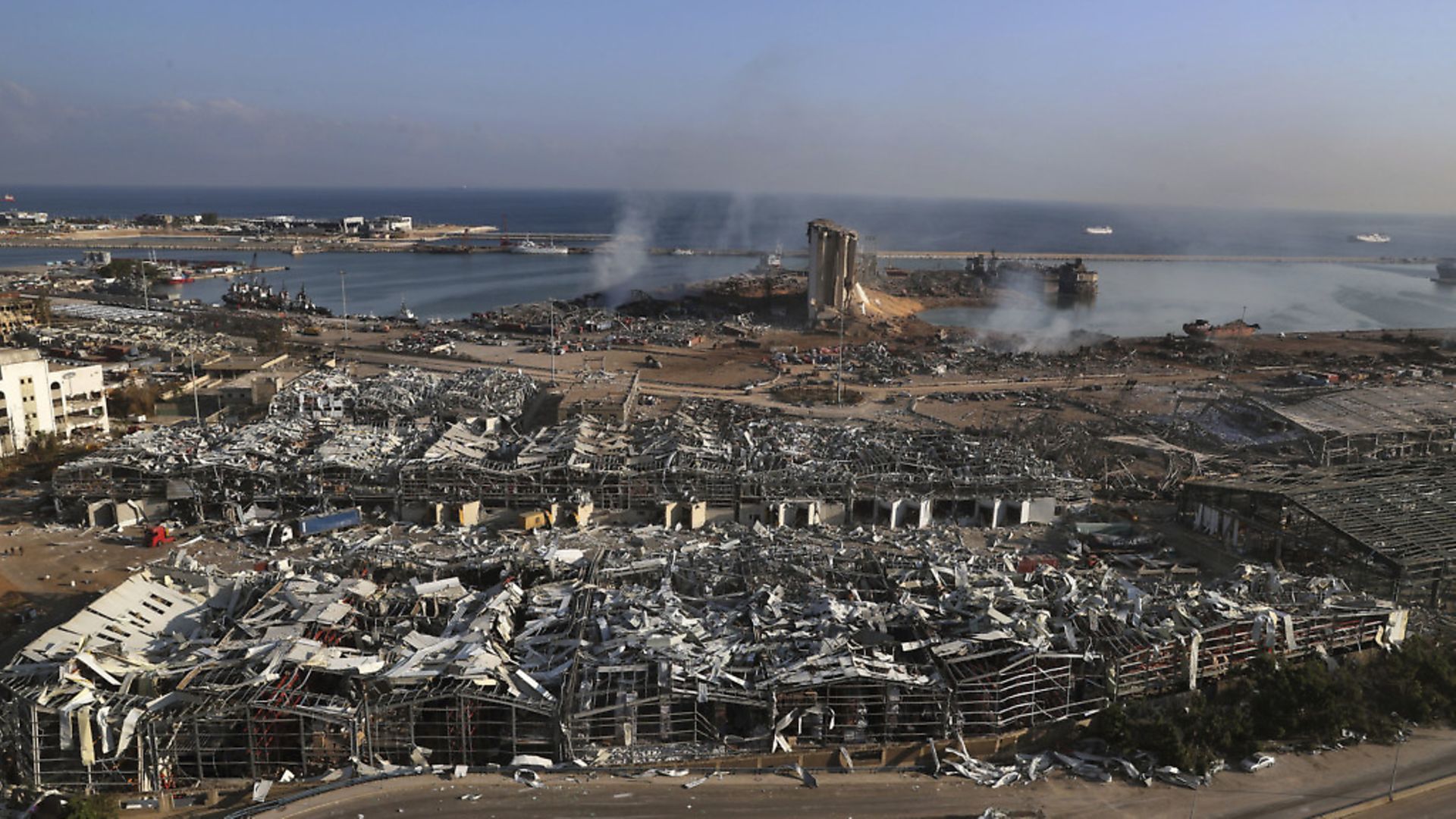
HARRIS IQBAL runs one of the major charities dealing with the aftermath of Tuesday’s explosion in Beirut.
On Tuesday a massive explosion tore through Beirut when 2,750 tonnes of ammonium nitrate combusted causing destruction that even war-time correspondents have seldom seen. A large-scale industrial accident in the face of a failing economy equates to nothing short of a humanitarian tragedy and a sign of how fragile some states have become during the pandemic.
By comparison, the ammonium nitrate-filled 1996 IRA bomb which flattened Manchester city centre contained 1.5 tonnes of explosive, making this nearly 2000 times as powerful.
Have your say
Send your letters for publication to The New European by emailing letters@theneweuropean.co.uk and pick up an edition each Thursday for more comment and analysis. Find your nearest stockist here or subscribe to a print or digital edition for just £13. You can also join our readers' Facebook group to keep the discussion and debate going with thousands of fellow pro-Europeans.
In the COVID age, many countries’ infrastructures are already close to breaking point. This means that any new superimposed stress or crisis can push struggling states into failed states – a catastrophic fate that I hope will be avoided in Lebanon. Humanitarian staff were already worried that the pandemic has stretched the country’s healthcare infrastructure beyond its capacity – with thousands now injured, over a 100 dead and billions of dollars of damage, the capital is now facing an unprecedented challenge.
Although there is still some speculation about what exactly happened on Tuesday, and what led to such a large amount of explosive material being stored so close to residential areas for six years, one thing is for certain: this is a humanitarian disaster, the fallout of which will have far reaching consequences for not just the millions of Lebanese citizens, but the region as well.
Lebanon is home to over 1.5 million refugees. This crisis will hit them and the most vulnerable first. Hospitals are overburdened and the planned COVID lockdown has been called off in the aftermath of the deadly explosion. This is against the backdrop of an economy that was already in tatters, with hyperinflation and skyrocketing unemployment.
For Lebanon, this is ‘crisis upon crisis’: a shattered economy and a crumbling health system due to waves of disasters; political strife, regional instability, a global pandemic and now one more crisis that may just push the country over the edge.
This phenomenon isn’t just a Lebanese problem, it is a tragic part of the ‘new normal’. I have seen through the charity I run, Penny Appeal, the impact the pandemic has had on other troubled parts of the world like Yemen, Gaza, Syria and Rohingya refugee camps in Bangladesh.
Societies and public services that were already hanging by a thread are in danger of falling into the abyss because of acute emergencies, on top of the ongoing ones.
In Lebanon, the economy already had one of the highest debt ratios in the world. As the currency crashed, imports – including the vast majority of the small country’s food supply – became exponentially more expensive. Many foods became unaffordable to most, as well as other essentials like fuel. Power cuts became an almost daily occurrence, meaning that essential services, including those provided by humanitarian workers, became unreliable. Our partners there have often struggled to continue their operations because of these conditions, more often seen in war zones.
Lebanon is now facing two acute health emergencies, firstly Tuesday’s fatal disaster, and secondly the worsening pandemic threat as social distancing becomes impossible in the disaster response. An estimated 300,000 have been made homeless (in a city of 2 million) with the loss of livelihoods due to the explosion promising to worsen the economic emergency. Then there is the shadow of this tragedy being politicised and worsening Lebanon’s religious and political divisions, leading to worse governance and potentially even conflict.
This is why the aid response must be comprehensive, swift and above all, apolitical.
There have already been offers of aid to Lebanon from Israel, Iran and Saudi Arabia: in short, all the regional powers that have played a hand in the small country’s political divisions and paralysis, past and present.
Just as the aid response is being politicised, so too is blame for the explosion, with conspiracy theories blaming all of those countries aforementioned, with scant regard for the evidence (or lack of it).
Humanitarian work must be built on humanity, not political or religious affiliations. Just like our staff in the UK that reflect the diverse communities of Britain, our partners in Lebanon hail from a range of Lebanon’s eighteen religious groups.
Humanitarian assistance that comes with strings attached inevitably cripples the beneficiaries in the long term, increasing societal divisions rather than healing them.
As well as a truly non-politicised international effort to get the country back on its feet, Lebanon needs sustained investment in its infrastructure and public services. Not too dissimilar to many developed countries, including Britain. Pandemics, deadly explosions and unprecedented disasters often open our eyes to the cracks (or indeed gaping holes) in what we assumed were otherwise resilient services.
The pandemic has shown us, whether in Beirut or Birmingham, that we need to be ever-prepared for the worst and invest in services that protect us all when disaster strikes.
• Harris Iqbal is CEO of international humanitarian charity Penny Appeal, whose emergency appeal for Lebanon is here.









